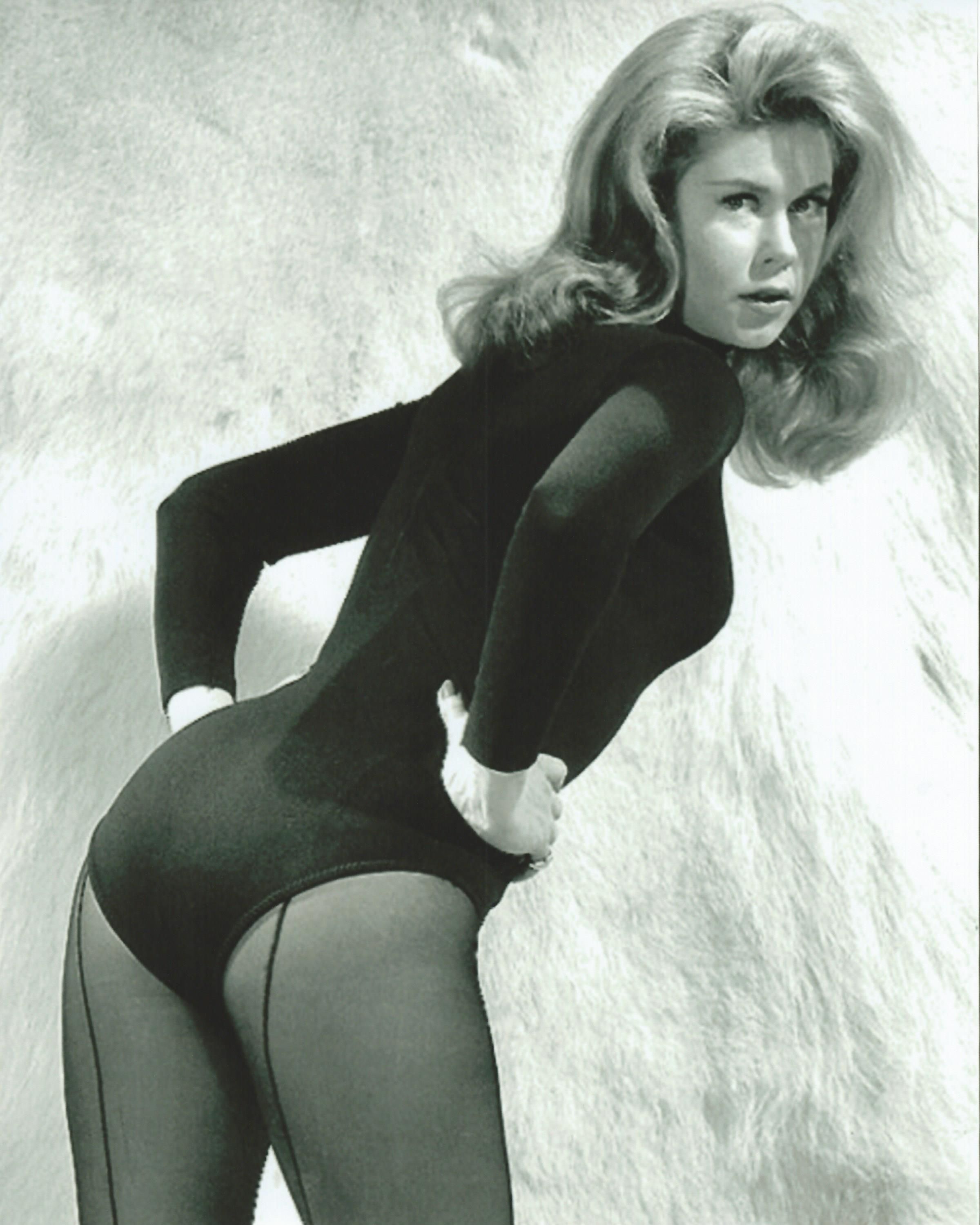Known primarily for her groundbreaking role as Samantha Stephens in the classic TV series *Bewitched*, Montgomery captivated audiences with her magnetic screen presence and versatile acting skills. Born into a family deeply rooted in the entertainment industry, she carved her own path, becoming a household name and a symbol of empowerment for women in the 1960s and beyond. Her legacy continues to inspire new generations, making her one of the most celebrated actresses of her era. Elizabeth Montgomery's career spanned decades, during which she not only showcased her acting prowess but also challenged societal norms through her roles. Whether she was wielding magical powers as Samantha or portraying complex characters in made-for-TV movies, Montgomery brought authenticity and depth to every performance. Beyond her professional achievements, she was a woman of substance, advocating for social causes and using her platform to address issues close to her heart. Her contributions to television and her humanitarian efforts cement her status as a true icon. In this article, we will delve into the life and career of Elizabeth Montgomery, exploring her biography, personal details, and the impact she left on the entertainment industry. From her early days in show business to her enduring legacy, we will uncover the stories that made her a beloved figure. Along the way, we'll answer some intriguing questions, such as "What Made Elizabeth Montgomery’s Role in *Bewitched* So Iconic?" and "How Did Elizabeth Montgomery Influence Women in Television?" Join us as we celebrate the life of a remarkable woman whose magic extended far beyond the screen.
Table of Contents
- Biography of Elizabeth Montgomery
- Personal Details and Bio Data
- What Made Elizabeth Montgomery’s Role in *Bewitched* So Iconic?
- Elizabeth Montgomery’s Career Highlights Beyond *Bewitched*
- How Did Elizabeth Montgomery Influence Women in Television?
- What Is Elizabeth Montgomery’s Enduring Legacy?
- Fun Facts About Elizabeth Montgomery
- Frequently Asked Questions About Elizabeth Montgomery
Biography of Elizabeth Montgomery
Elizabeth Montgomery was born on April 15, 1933, in Los Angeles, California, into a family with deep ties to the entertainment industry. Her father, Robert Montgomery, was a renowned actor and director, while her mother, Elizabeth Bryan, was a former stage actress. Growing up in this creative environment, Elizabeth was exposed to the world of acting from a young age. However, she initially pursued a career in education, attending the American Academy of Dramatic Arts to hone her skills.
Montgomery's breakthrough came in the early 1960s when she landed the role of Samantha Stephens in *Bewitched*. The show, which aired from 1964 to 1972, became a cultural phenomenon and catapulted her to stardom. Her portrayal of a witch trying to live a normal life as a suburban housewife resonated with audiences worldwide. The series not only showcased her comedic timing but also allowed her to explore deeper emotional themes, solidifying her status as a versatile actress.
Read also:Mikhail Baryshnikov The Iconic Ballet Dancer Who Redefined Dance
Throughout her career, Elizabeth Montgomery continued to take on diverse roles in television movies, earning critical acclaim for her performances. She was known for her dedication to her craft and her ability to bring authenticity to every character she portrayed. Off-screen, she was a private person who valued her family and personal life, often using her platform to advocate for social causes. Her contributions to the industry and her humanitarian efforts have left an indelible mark on the world of entertainment.
Personal Details and Bio Data
| Full Name | Elizabeth Montgomery |
|---|---|
| Date of Birth | April 15, 1933 |
| Place of Birth | Los Angeles, California, USA |
| Date of Death | May 18, 1995 |
| Occupation | Actress, Producer |
| Years Active | 1951–1995 |
| Notable Works | *Bewitched*, *The Legend of Lizzie Borden*, *A Case of Rape* |
| Spouses | Frederic Gallatin Jr. (1954–1963), William Asher (1963–1973), Robert Foxworth (1993–1995) |
| Children | 3 (William, Robert, Rebecca) |
What Made Elizabeth Montgomery’s Role in *Bewitched* So Iconic?
Elizabeth Montgomery’s portrayal of Samantha Stephens in *Bewitched* remains one of the most iconic performances in television history. The character of Samantha, a witch who marries a mortal man and tries to live a normal life, was groundbreaking for its time. Montgomery brought a unique blend of charm, wit, and vulnerability to the role, making Samantha relatable to audiences of all ages. Her ability to balance comedy with heartfelt moments set her apart from other actresses of the era.
One of the reasons Samantha resonated so deeply with viewers was her relatability. Despite her magical powers, Samantha often found herself grappling with everyday challenges, from misunderstandings with her husband, Darrin, to conflicts with her mischievous family members. Montgomery’s nuanced performance allowed audiences to see themselves in Samantha, creating a strong emotional connection. Her chemistry with co-star Dick York (and later Dick Sargent) added an extra layer of authenticity to the show, making it a staple in households across America.
Moreover, *Bewitched* tackled themes that were ahead of its time, such as gender roles, marriage dynamics, and the struggle for independence. Elizabeth Montgomery’s portrayal of Samantha subtly challenged societal norms, making the character a symbol of empowerment for women. Her decision to remain understated and graceful, even in fantastical situations, added to the show’s charm and longevity. It’s no wonder that *Bewitched* continues to be celebrated as a classic, with Montgomery’s performance at its heart.
A Closer Look at Samantha Stephens
Samantha Stephens was more than just a witch with a twitch of her nose; she was a multifaceted character who embodied strength, kindness, and resilience. Elizabeth Montgomery’s interpretation of Samantha allowed viewers to see her as both a supernatural being and a relatable human. Her ability to navigate the complexities of her dual identity—witch and housewife—was a testament to Montgomery’s skill as an actress.
Montgomery’s portrayal of Samantha was marked by subtlety and restraint. Unlike other characters in the show, Samantha rarely relied on her powers to solve problems. Instead, she approached challenges with intelligence and empathy, often finding solutions through sheer determination. This approach made her a role model for viewers, particularly women, who admired her independence and resourcefulness.
Read also:Where Is Sarah Pender Now 2024 A Comprehensive Update On Her Life And Journey
The Cultural Impact of *Bewitched*
*Bewitched* was more than just a sitcom; it was a cultural phenomenon that left a lasting impact on television and society. The show’s exploration of themes such as marriage, identity, and gender roles resonated with audiences during a time of significant social change. Elizabeth Montgomery’s portrayal of Samantha Stephens played a pivotal role in this cultural shift, offering a fresh perspective on what it meant to be a modern woman.
Additionally, *Bewitched* paved the way for future supernatural-themed shows, influencing everything from *Charmed* to *Sabrina the Teenage Witch*. The series also broke barriers in terms of representation, featuring a strong female lead who defied traditional stereotypes. Elizabeth Montgomery’s performance as Samantha remains a benchmark for actors and creators, proving that a well-written character can transcend generations.
Elizabeth Montgomery’s Career Highlights Beyond *Bewitched*
While *Bewitched* remains Elizabeth Montgomery’s most iconic role, her career extended far beyond the magical world of Samantha Stephens. After the show ended in 1972, Montgomery continued to make waves in the entertainment industry, taking on challenging roles in television movies that showcased her versatility as an actress. Her post-*Bewitched* career was marked by critically acclaimed performances that demonstrated her ability to tackle complex and emotionally charged narratives.
One of her most notable roles came in 1975 with *The Legend of Lizzie Borden*, a made-for-TV movie in which she portrayed the infamous accused ax murderer. Montgomery’s performance was widely praised for its depth and intensity, earning her a Primetime Emmy nomination. The role was a departure from her *Bewitched* persona, highlighting her range as an actress and proving that she could excel in dramatic roles. Similarly, her work in *A Case of Rape* (1974) and *Amelia Earhart* (1976) further cemented her reputation as a serious and talented performer.
Montgomery’s later career also saw her taking on roles that aligned with her personal values. She was known for choosing projects that addressed social issues, such as domestic violence, women’s rights, and mental health. Her dedication to meaningful storytelling earned her respect from both critics and audiences, solidifying her status as a trailblazer in the industry.
How Did Elizabeth Montgomery Influence Women in Television?
Elizabeth Montgomery’s influence on women in television cannot be overstated. Through her groundbreaking role in *Bewitched* and her subsequent work, she challenged traditional gender roles and paved the way for future generations of female actors. Samantha Stephens was not just a character; she was a symbol of empowerment, representing a new kind of woman who could balance independence with grace.
Montgomery’s decision to take on socially relevant roles in television movies further amplified her impact. By addressing issues such as domestic violence and women’s rights, she used her platform to bring attention to important causes. Her performances inspired countless women to pursue careers in entertainment and beyond, proving that actresses could be both talented and socially conscious.
What Is Elizabeth Montgomery’s Enduring Legacy?
Elizabeth Montgomery’s legacy extends far beyond her contributions to television. She remains a beloved figure whose work continues to inspire and entertain audiences worldwide. Her ability to bring authenticity and depth to every role she played set her apart as an actress and a cultural icon.
Elizabeth Montgomery’s Role in Social Advocacy
Throughout her career, Montgomery was a vocal advocate for social causes, using her fame to raise awareness about issues such as domestic violence and women’s rights. Her commitment to making a difference in the world remains a testament to her character and values.
Why Elizabeth Montgomery Still Matters Today
In today’s world, Elizabeth Montgomery’s work continues to resonate with audiences. Her portrayal of strong, independent women serves as a reminder of the importance of representation in media. Her legacy lives on through the countless actors and creators she inspired.
Fun Facts About Elizabeth Montgomery
- Elizabeth Montgomery was a skilled painter and enjoyed creating abstract art in her free time.
- She was a descendant of the famous Revolutionary War hero General Richard Montgomery.
- Montgomery was a private person who rarely gave interviews, preferring to let her work speak for itself.
Frequently Asked Questions About Elizabeth Montgomery
What Was Elizabeth Montgomery’s Most Famous Role?
Elizabeth Montgomery’s most famous role was Samantha Stephens in the classic TV series *Bewitched*. Her portrayal of the magical housewife made her a household name and remains one of the most iconic performances in television history.
How Did Elizabeth Montgomery Die?
Elizabeth Montgomery passed away on May 18, 1995, after being diagnosed with colorectal cancer. Her death was a significant loss to the entertainment industry, but her legacy continues to inspire.

